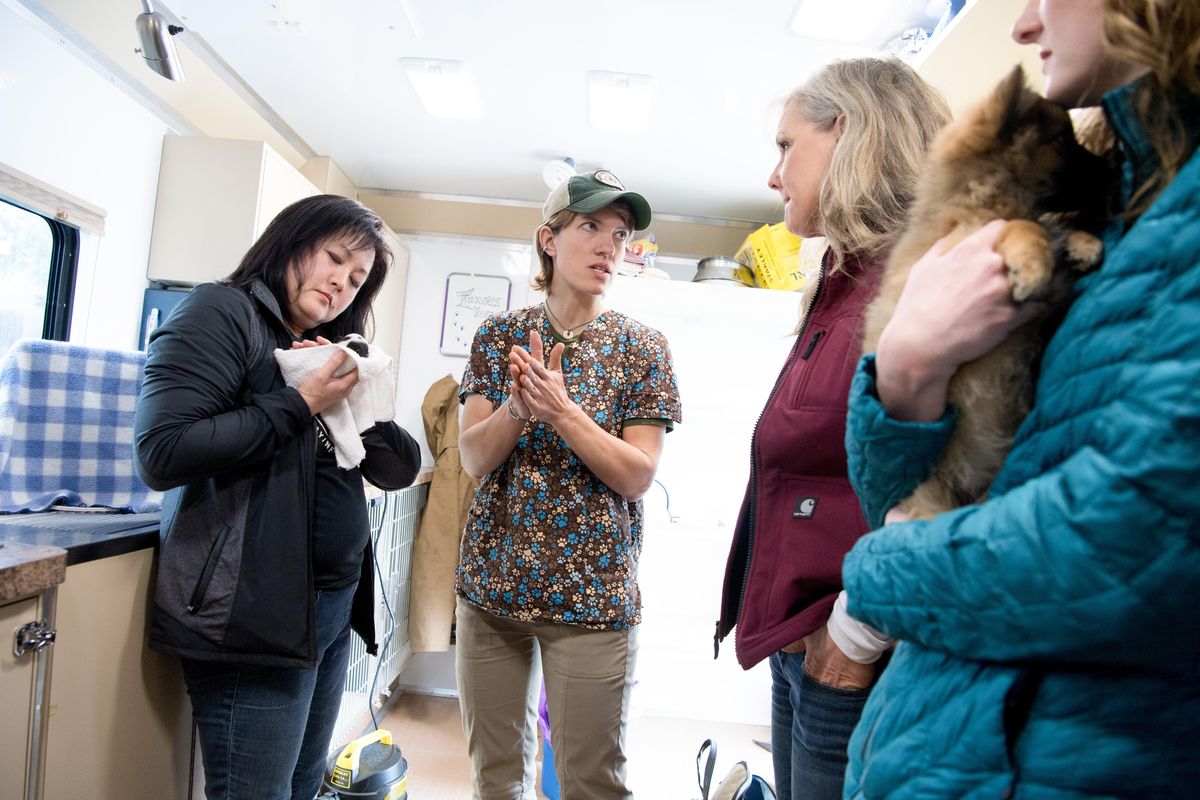Spokane veterinarian takes clinic on the road

A desire to help animal shelters, low-income residents and their pets has put Spokane veterinarian Dr. Laura Talaga on the road.
Talaga will launch her mobile veterinary service – the Northeast Washington Spay Neuter Alliance – on Sunday to provide low-cost spaying and neutering. She will also provide microchipping, vaccinations, dental care and appointment-only surgeries.
She started the mobile vet service to address ongoing concerns about pet overpopulation and serve low-income residents who may not have transportation to a veterinary clinic.
“There just needs to be more resources for low-income people,” she said. “The mobile part makes it super easy for them to get to you.”
Talaga is scheduling appointments for the mobile clinic, which will be open four days a week. The Country Store will host the clinic at its locations throughout Spokane, but Talaga is on the lookout for other sites to receive patients on an ongoing basis.
A big focus of Talaga’s vet service is consistent pricing with no surprise charges.
“It’s really unfair when people go to the vet, drop their dog off for a procedure and they have an estimate, but the price is way more than they are expecting,” she said.
Talaga’s prices are about $25 for microchipping and begin at $40 for cat spaying or neutering, while neuter and spay pricing for dogs begins at $70 and depends on weight. She plans to offer vouchers for people needing financial assistance as well as discounts to nonprofit shelters and animal rescues.
Talaga purchased a 20-foot-long, custom-designed mobile trailer for $60,000, which was financed through donations and loans.
Talaga, who graduated from the Ross University School of Veterinary Medicine on the Caribbean island of Saint Kitts in 2012, has extensive veterinary experience. She completed the American Society for the Prevention of Cruelty to Animals Humane Alliance Veterinary Training Program, helped build shelter medicine programs, volunteered in Nicaragua and Honduras and provided veterinary services in Louisiana.
After Talaga moved to Washington, she was employed with the Spokane Humane Society and is now a permanent surgeon for spay and neuter services every Friday at Pet Savers in Spokane Valley.
Because the Spokane County Regional Animal Protection Service voucher program – which was funded by pet licensing fees – was discontinued in December and SpokAnimal closed its Dorothy Clark Animal Center in February, there is an increased need from shelters for low-cost vet services to save animals, said Cheri Scandalis, who operates the Higher Ground Animal Sanctuary in Mead.
“(SCRAPS) wanted to be able to provide it. It got us up to where we are today, but people in Spokane don’t license their pets like they should,” she said. “Often times, licensing secures our pet guardianship if (the pet) gets stolen or lost. If we aren’t licensing our animals, not only are we not supporting their protection, but we aren’t funding extremely important programs in the community.”
Scandalis said the Higher Ground Animal Sanctuary altered more than 200 cats through the SCRAPS low-cost voucher program, which ran about $32 to $42 per pet, but she now plans to use Talaga’s mobile vet service.
“It could not have happened soon enough,” she said. “I could just imagine (Talaga) is going to be a busy lady.”
Scandalis and those with other rescue agencies discussed concerns and the need for a mobile clinic with Talaga. Scandalis said the Spokane Humane Society is booked for months, and other clinics are too expensive for rescue shelters.
There are other mobile vet services such as Dr. Jerome Leise’s Pet Vaccination Clinic – which stops by Northwest Seed and Pet – but it doesn’t offer surgery or dental care.
“Dr. Laura can do 32 spay and neuters in one day,” Scandalis said. “She has just done an amazing job. I never had any concerns about her as a vet.”
Talaga will travel to rural communities in Eastern Washington to provide vet care and wants to eventually become a nonprofit.
“We have been able to do really great things with the rates,” Talaga said. “Anything we can do to help with medical needs and (animal) overpopulation is going to be a giant step in the right direction.”